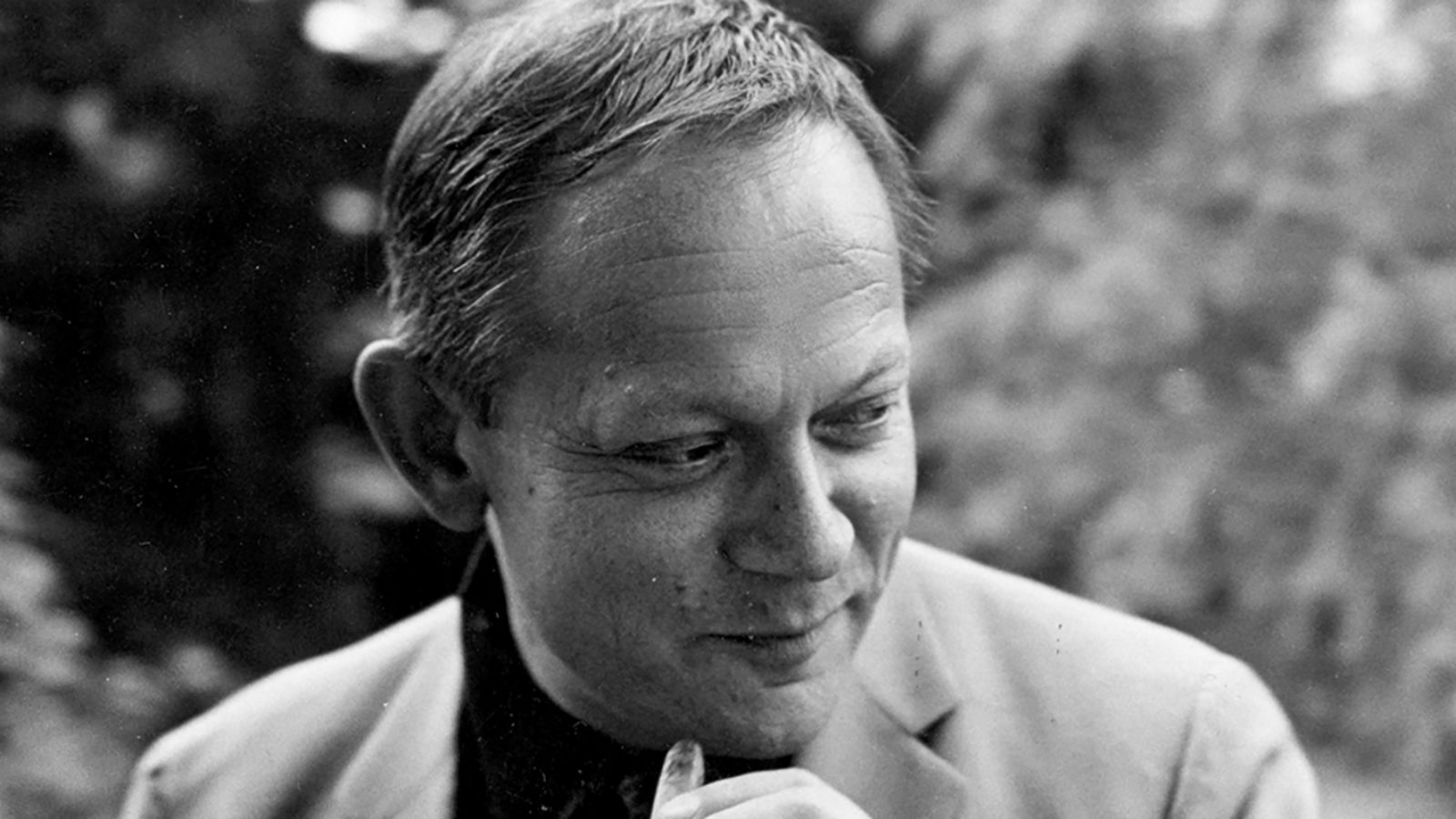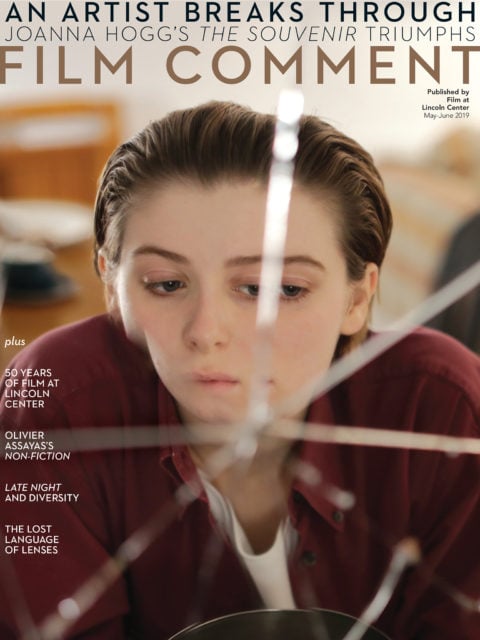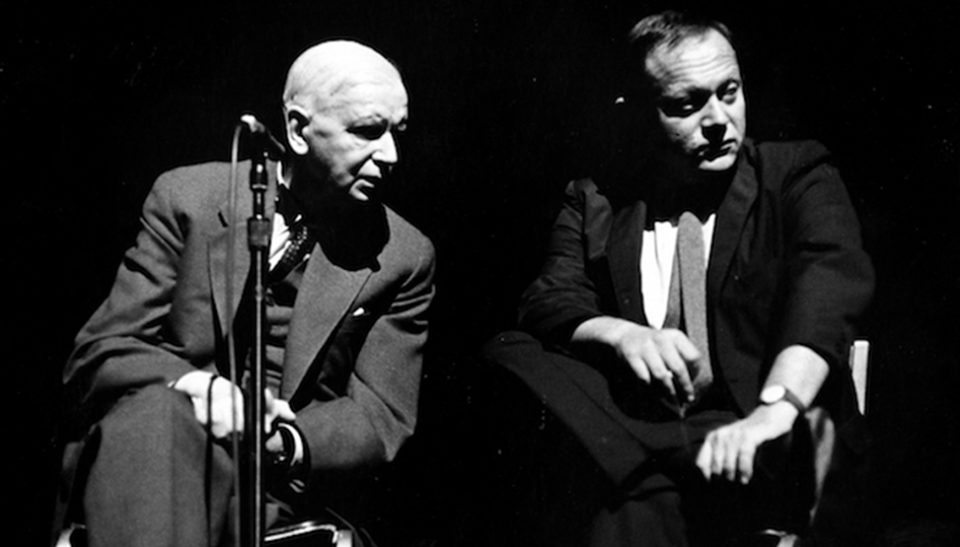
Breaking Ground
For the past half-century, the Film Society of Lincoln Center—now named Film at Lincoln Center—has been a hub of cinema culture. The institution has built on the legacy of the 1963 debut of the New York Film Festival with a variety of annual events and screening series, including New Directors/New Films, Rendez-Vous with French Cinema, New York African Film Festival, Film Comment Selects, and Art of the Real; and the formation of two year-round movie theaters, the Walter Reade Theater in 1991 and the Elinor Bunin Munroe Film Center in 2011. Fifty years on, it’s fair to say that no other organization in the United States has fostered and maintained such a sustained devotion to the art of film.

The radical and expansive approach to cinema brought to Lincoln Center in the 1960s by NYFF programmers Amos Vogel and Richard Roud would prove wildly influential on the cultural landscape of the city. Their efforts ultimately led to the formation of the Film Society in 1969, and they remain a guiding light for all those who make the organization what it is today. (Film Comment, first published in 1962, became an official publication of the organization in 1974.)
Vogel had already been a major figure due to his founding of the highly influential film society Cinema 16 in 1947 (and would later publish his unparalleled book Film as a Subversive Art). The following abridged excerpts came from Vogel’s interview for Lincoln Center for the Performing Arts’ Oral History Project, conducted between November 11 and December 15, 1993, and are reprinted by permission of LCPA.—The Editors

Carl Theodor Dreyer with Amos Vogel
Well, first of all, I had watched the founding of Lincoln Center. I realized something was happening there that was of much interest, and would make a real difference in the cultural life of the city. So, here’s what happened. It was very, very interesting. When the crisis about Cinema 16’s financial situation began to emerge, I began to realize that maybe this thing cannot continue and that I really ought to look around. So that happened at the very moment when [William] Schuman became president [of Lincoln Center], and the whole thing began to get rolling there, which was already operating as a reality in New York. So around the fall of ’62 I wrote a letter to Schuman and said to him, essentially, “I’m sure you know what I’ve been doing. It seems to me that Lincoln Center has a responsibility to do something about film in addition to the other art forms.”
In ’63, he told me he had gotten my letter and they were planning to do something—namely, the Festival. It would be an international film festival over a two-week period or so. He saw me around April. Okay, so, he said, “I want to do this in the fall—would you be interested? And there’s one other aspect,” he says. “We want to do this together with the London Film Festival, the British Film Institute.” The British Film Institute was the equivalent of The Museum of Modern Art Film Department, an excellent organization; they were running a film festival every year called the London Film Festival, and this was run by Richard Roud. He was the program director.
I believe within one year or so after I came there, I convinced Schuman that what we really needed, as an initial step toward the integration of film into the Center, was a film department. So, a film department was established, of which I was the head. This film department, it was understood, would begin to develop programs or plans for other things in terms of film at [Lincoln] Center. Now, that means that even at this early stage I already began to [say] to Schuman: “Listen. You’ve got these other art forms here—opera, theater, music, whatever—why not film?” In fact, frankly, speaking for myself, I felt the absence of film from [Lincoln] Center was sort of an example of the kind of cultural conservatism that I really wanted to help change.
By definition, the audiences for classical music or for opera are more bourgeois, if you want to use that term—or more upper-class, or more sedate or conservative or something like that—than for film. Particularly for the kinds of films we showed. In that sense, Godard was absolutely wild, compared to the operas at Lincoln Center, let’s say. But not only Godard. I would say probably half the program, maybe two-thirds of the program, was totally out of the range of what was usually shown at Lincoln Center. That’s why I have a lot of respect for Schuman, because he went to a lot of the shows. I never heard negative things about our programming from him, and the programming was so goddamned different! Don’t forget, when you have a theater component, you can put on one avant-garde play or whatever, or a far-out play. Let’s not say avant-garde play, that’s a false term here. But you can put one experimental play or something on, it will run for a while, and then you can put some others on that are much more conventional, etc., etc., but you haven’t got that many plays a year. In this Festival, you had 22 totally different examples of film art, from all over the world. Very advanced kinds of stuff. So, therefore, there was a pre-selection in terms of the audience. It was very varied. There were students and there were artists, there were intellectuals, all kinds of things. But, anyway, it was a totally different kind of audience. I think that Schuman understood that and appreciated it, because it really broadened the base of the audiences that were attracted to Lincoln Center.
I remember Schuman told us that there was a public high school in back of Lincoln Center—some specialized high school with a lot of students [the High School of Commerce]. He said they owned that land, and the school was going to have to close—they were going to build an additional building with all kinds of things in it, and that building would include the offices and the cinema of the Film Society. By the way, that was the name I selected for it. So that the present Film Society of Lincoln Center was really named by me. [The Rose Building] is exactly in that area now, what we’re talking about now. So, actually, these various things did finally come to pass, in one way or another.







